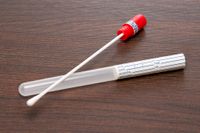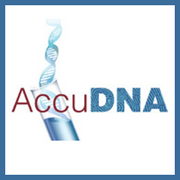
Legal DNA testing is a process by which DNA samples are collected and the integrity of the samples can be documented and proved. At-home DNA testing offers no control over sample security and is both not admissible in a court of law and may not be acceptable for any type of legal issue. If you need or are considering DNA testing, read below to determine when legal testing is required.
What You Need to Know About Legal DNA Testing
When Do You Need a Legal Test?
DNA testing labs offer neutral third-party oversight over the DNA samples collected. This is necessary to prove the reliability of the sample to a judge or court. The following situations are examples of when you would likely need legal testing:
- Proof of paternity
- Receipt of Social Security benefits
- Estate settlements
- Claiming military benefits
- Custody disputes
- Adoption inquiries
Those who are curious about ancestral heritage or genetic predisposition to certain family characteristics, or who are considering using DNA as a factor in family planning may be served by at-home kits. However, if you think you will ever need the DNA test to be used in legal proceedings, consider choosing a legal test.
Who Can Perform a Legal DNA Test?
 Hospitals, medical offices, health departments, and other licensed facilities can perform legal tests. These testing sites must be able to follow chain-of-custody protocols, including supervised sample collection, third-party identification of the test subjects, and properly documented labeling, storage, and transport of the samples to a testing facility.
Hospitals, medical offices, health departments, and other licensed facilities can perform legal tests. These testing sites must be able to follow chain-of-custody protocols, including supervised sample collection, third-party identification of the test subjects, and properly documented labeling, storage, and transport of the samples to a testing facility.
How Is a DNA Test Performed?
At the DNA collection site, a neutral third party will ask both adult and minor participants to present government-issued IDs. Participants may be photographed and fingerprinted and must complete a consent form. The sample is taken with a swab on the inside of the cheek, and the process is painless and quick. No blood tests are necessary, as DNA is present in every cell of the body. The exception to this is pre-natal paternity testing.
Legal DNA testing is required whenever it is going to be used in legal proceedings to provide proof of an identity or a familial relationship. AccuDNA in St. Louis, MO, offers legal DNA testing for paternity verification, grandparentage, custody situations, siblingship, or avuncular (aunt/uncle) testing. Visit their website to view their services or call (314) 845-9997 to make an appointment. Appointments are required for testing.
About the Business
Have a question? Ask the experts!
Send your question

